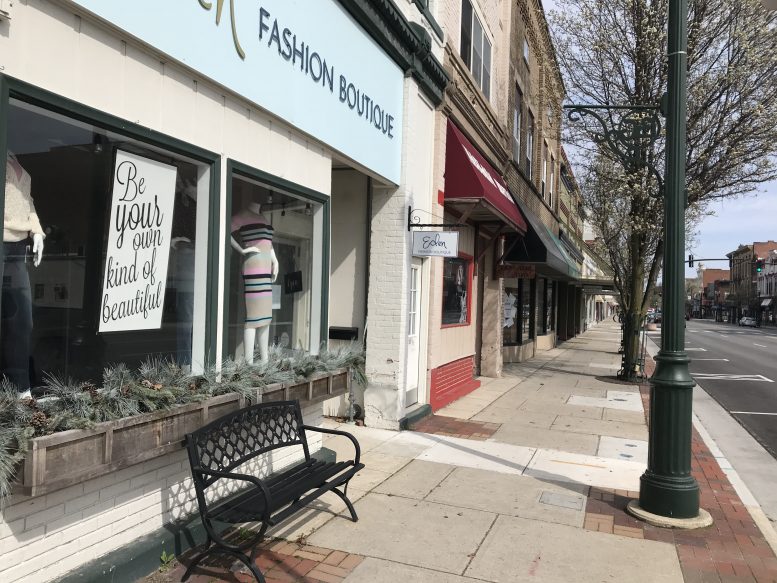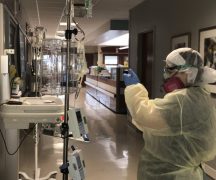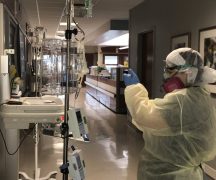By DAVID DUPONT
BG Independent News
Running a small business is tough enough.
Ben Vollmar, owner of Flatlands Coffee, in downtown Bowling Green, said: “If you’re going to stay in business you have to have the fighter mentality and to step up to challenges.”
Maintaining a business in what is now “a ghost town” is even more of a challenge.
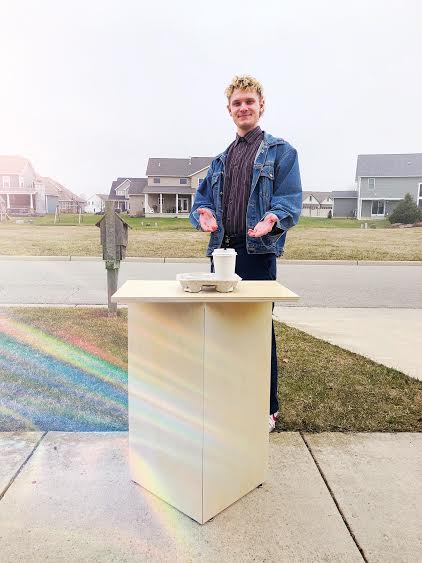
That’s the dilemma for business owners in downtown Bowling Green as the shutdown of non-essential businesses and the stay-at-home orders stretch into their fourth week. This is especially true after the downtown has just weathered a year of disruption from road and infrastructure work.
A few businesses are able maintain something resembling normal operations – Belleville Market and Main Street Ace Hardware remain open, though both limit the number of customers inside at any time, and Ace has shorter hours.
Restaurants are able to maintain pick-up and delivery services, though some like Grounds for Thought opted to simply shutter their operations for the duration, though the shop still delivers coffee beans.
Other shops, gift, clothing, record , have closed their doors, with many still selling their merchandise.
Gayle Walterbach, owner of Coyote Beads, still goes into her shop daily from 10 a.m. to 4 p.m., even though customers are not allowed in. This, she said, is her way to maintain a sense of normalcy.
She’s using the stay-at-home period to upgrade her website, something that will have long-term benefits.
She’s taking both online orders and orders by phone (419-354-2323).
This is not only helping keep her own sense of normalcy going, but helping others get through long days at home. “I’m putting together bead kits for people to enjoy at home.” Those include projects suitable for kids, and more intricate projects for adults.
“It’s a struggle,” Walterbach. She’s applied for loans to help get through “the next several weeks.”
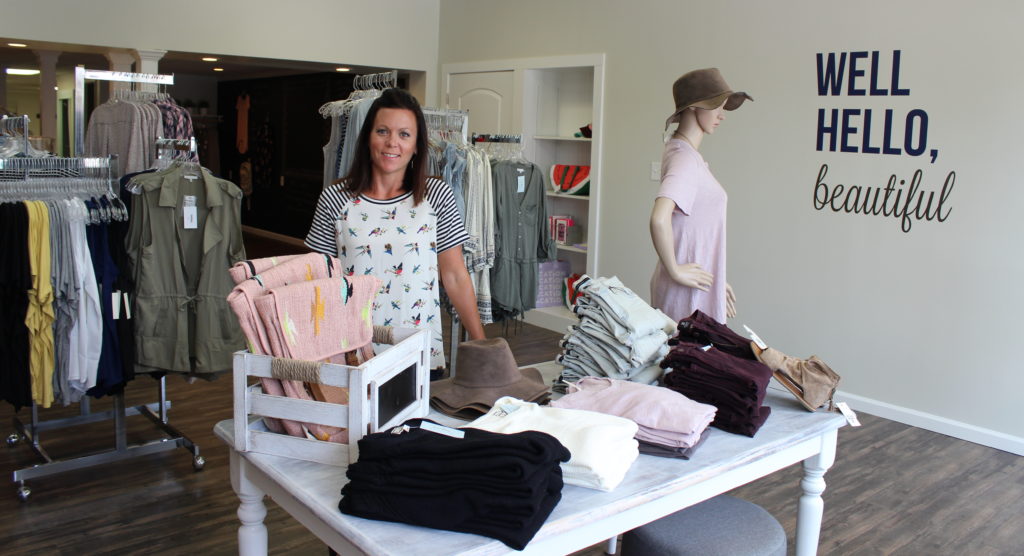
Two doors down, Kati Thompson, owner of Eden Fashion Boutique, is also trying to stay positive.
“Being shut down has been very challenging,” she wrote in an email. “We planned to take the original two week stay-at-home-order off from doing business, but when that order was extended throughout April, we knew we had to start doing something in order to survive. … This has forced the Eden team to get creative and serve our customers in ways we never intended.”
In addition to the shop’s online sales, the business offered Eden Easter Baskets, full of “goodies” from the shop.
Using its Facebook or Instagram accounts the boutique reached out to customers. The shop provided free front porch drop-offs in town, curbside pickup, and shipping for a small fee.
Thompson is also looking ahead to when they reopen. She’s opening up a resale shop in the rear of the store. She’s encouraging shut-in customers to clean out their closets. She’s offering free pick up. Details are available on the shop’s website.
While online sales help, Thompson said, she and her employees miss the customers. “Our primary business model has always been to offer excellent face-to-face service to our customers,” she wrote. “Those are the relationships we’re building and you just can’t have that same touch online.”
A block north at Flatlands, Vollmar is also missing his customers. “There’s a huge joy to be a host, to have people visit the space, enjoy the atmosphere, make conversation, and to see the impact we’re having.”
Vollmar and his crew aspire to bring a little of that to customers with their delivery service. “We’re still experiencing that just in a different way.”
They have a specially constructed wooden mobile coffee bar that the barista sets up socially distanced from the customer’s door, so they can come out and fetch their drink.
“In time that’s hard and difficult when people are facing anxiety and uncertainty, having someone be out there with encouragement and smiles and positivity helps us get through this. … It seems it means even more than it ever has before. The general feedback is so deep and so sincere … it fuels us even more.”
His wife, Cassy, has developed a new product, “positivity cookies,” large heart-shaped almond-tinged confections decorated with statements of encouragement .
These and the other baked goods are now being sold online.
Vollmar said on the practical side the shop has implemented rigid sanitation procedures that start from the time anyone steps inside the shop to work.
He has more down the pipeline. He’s working with a third party to develop an app, and he’s planning to start delivering some of the shop’s most popular lattes in half-gallon jug.
“We’re becoming the old-fashioned milkman,” he said.
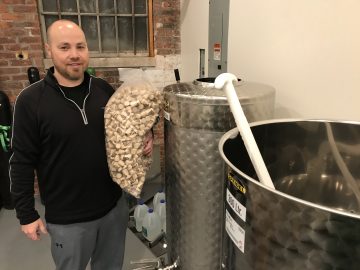
Kevin Madaras of Myla Marcus Winery is also doing delivery. And are doing well with it because of a strong word of mouth campaign.
Deliveries have been particularly strong in Pemberville and Luckey where he grew up and his family is well known.
“We’re considered food,” he said of his product.
The winery has just begun it’s soft opening phase, when the coronavirus pandemic deepened.
On the advice of his wife, Leslie, who works in public health, he opted to only deliver so the tasting room has remained closed. But though the tasting room was open three evenings, Madaras is now taking orders Monday through Saturday.
“We’re doing OK, not quite like where we’d like to be,” he said. He’s meeting customers, but through a screen door. Madaras expects delivery will be part of his business “indefinitely.”
Delivery has taken up time that otherwise would be used for making wine.
He now offers four varietals – Riesling, Concord, Pink Catawba, and Clutch Rose, probably Myla Marcus’ biggest seller.
But Madaras said he’d hoped to have a dozen varieties ready for a spring grand opening, but that is being delayed indefinitely.
These are tough times for all the downtown businesses, located in what is now “a ghost town,” he said. He’s especially concerned for those business who don’t have products that are not easily delivered, or are food or alcohol. “I can’t even imagine how they’ll make it.”
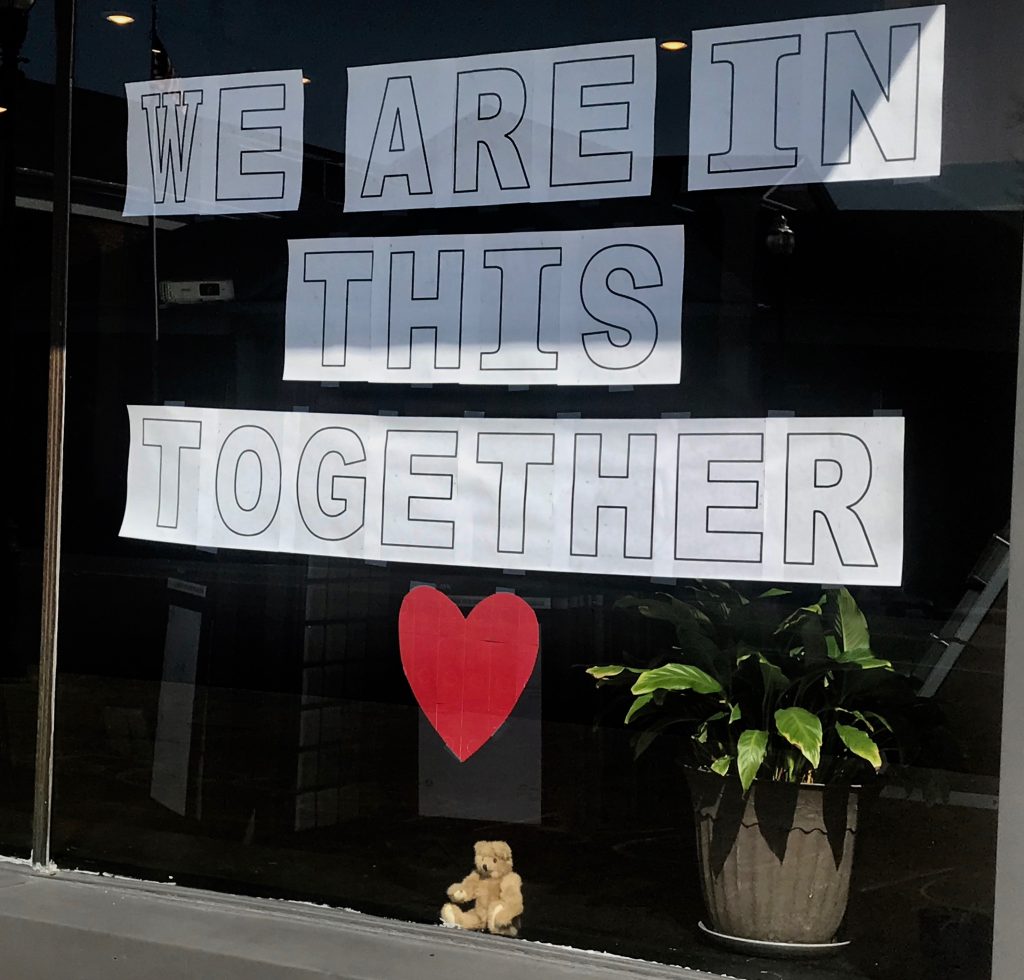
Homeworks Design, because it carries paint and flooring, is still open, though it gets at most a half dozen customers a day.
Cody Scherff said those are mostly contractors, who are regular customers, and the occasional homeowner who decides since they’re stuck at home, they might as well paint.
But no one, he said, is coming in for counter tops and flooring.
March started out pretty well, but the sales plummeted to 30-40 percent of the previous year, and he expects the store will be lucky to have 30 percent of last year’s sales for April.
Still as students move out, landlords will be painting and replacing flooring, so he’s hoping that results in increased sales.
George Strata, owner of Beckett’s Burger Bar and Call of the Canyon, has seen an uptick in pick up and delivery orders, but not enough to make up for the loss of dine in business.
Most of the wait staff has been laid off, and the kitchen staff is working fewer hours.
“There’s definitely less hours in the day to give people,” he said.
As it is, revenue is a third of what it had been. That’s not enough to cover the cost of maintaining the restaurant space.
“We’re going to fight every day to keep people employed. We make adjustments every day. Every day changes. I don’t want to put closing as an option, so every day is a fight.”
(This is the first of two stories. Tomorrow business proprietors reflect on future.)

